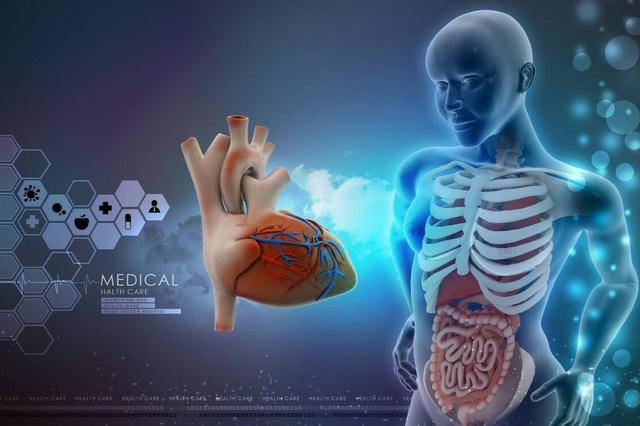As we all know, cardiovascular disease is the “number one killer” threatening the health of middle-aged and elderly people. According to the “2020 Report on Cardiovascular Health and Disease in China,” the number of people in China suffering from cardiovascular diseases is about 330 million, with the death rate ranking first. Therefore, taking care of blood vessels is currently the top priority for the middle-aged and elderly population.
Walnuts are an excellent brain-boosting food, a fact widely recognized. The slogan “Exercise your brain often, drink six walnuts more” has become deeply ingrained in people’s minds.
However, many people have always had doubts about the topic of “Can walnuts nourish blood vessels?” because walnuts are rich in oil content. If consumed in excess, it can increase blood viscosity and worsen clotting. So, can walnuts really help us take care of our blood vessels? Let’s explore this together.
Walnuts are the “guardians” of heart health! Eating three a day helps cleanse your blood vessels and prevent blood clots.
A study published in the “American Journal of Nutrition” found that for eight weeks, overweight individuals who ate walnuts daily not only did not gain weight but also showed significant improvement in endothelial function.
Endothelium is vital for maintaining vascular function. Good endothelium leads to better vascular wall contraction and permeability, allowing for quicker elimination of toxins and harmful substances from the body.
Modern research has found that walnuts contain arginine, which helps reduce arteriosclerosis, keeping blood vessels elastic. Additionally, walnuts contain monounsaturated fats that have a positive effect on clots and palpitations, giving walnuts the function of protecting blood vessels and enhancing cardiac muscle.
Therefore, walnuts can indeed help us take care of our blood vessels, so everyone can eat them with confidence. However, it’s essential to note that walnuts contain a relatively high amount of fat. Excessive consumption may lead to problems like obesity and diarrhea. Therefore, eating 3-5 walnuts a day can provide the necessary nutrition for the body.
Walnuts are not the only saviors for blood vessels—these five foods are also great.
Aside from walnuts, many common foods in our daily lives can help us take care of our blood vessels. These five foods are very familiar:
1. Black Fungus
Black fungus contains a high amount of vitamins and carotenes with excellent antioxidant properties, helping delay vascular aging, reducing the chances of vessel blockage and hardening. Additionally, black fungus contains unsaturated fatty acids that can reduce cholesterol levels, lowering the risk of vascular blockages and hardening.
2. Tomatoes
Tomatoes are rich in lycopene, which acts as an antioxidant, enhancing vascular elasticity and slowing down vascular aging. Moreover, tomatoes contain nicotinic acid, promoting red blood cell formation. Red blood cells are crucial for maintaining vascular wall elasticity and accelerating blood circulation.
3. Bitter Gourd
Although many people dislike bitter gourd due to its bitterness, it is an invaluable ingredient for cleansing blood vessels. Rich in vitamins, bitter gourd is approximately ten times higher in content than tomatoes and has detoxifying and antioxidant effects.
4. Onions
Onions contain flavonoids and sulfides that help clear serum cholesterol. Additionally, they contain Prostaglandin A, which dilates blood vessels, allowing unobstructed blood flow.
5. Celery
Celery is rich in potassium, serving a complementary role in lowering blood pressure. Its abundance of calcium and phosphorus has a calming effect and benefits vascular protection.
In addition to diet, remember to do these “two things” to keep your blood vessels clear.
1. Drink more water
Water is the source of life. Scientific research shows that water constitutes over 90% of the human body, underscoring the importance of water. Regular water intake not only boosts metabolism but also helps dilute blood, enhance blood transport speed, and prevent blood vessel blockages. It is recommended that an average person consume 1500-2000 ml of water a day.
2. Exercise more
The benefits of exercise go beyond weight loss and body shaping, maintaining good physical shape. Effective exercise for middle-aged and older people can help improve blood pressure, blood lipids, blood sugar, lower the chances of cardiovascular and cerebrovascular diseases, enhance cardiorespiratory endurance, muscle strength, and overall physical activity quality.
Therefore, make time to move around more in your spare time, whether it’s walking, jogging, or practicing Tai Chi. It has positive effects on your health.
In conclusion, as one reaches middle age, taking care of blood vessels becomes a top priority—everyone must not take this lightly. If you have habits like smoking and drinking, consider quitting as these habits can easily lead to vascular fragility and subsequent illnesses.


